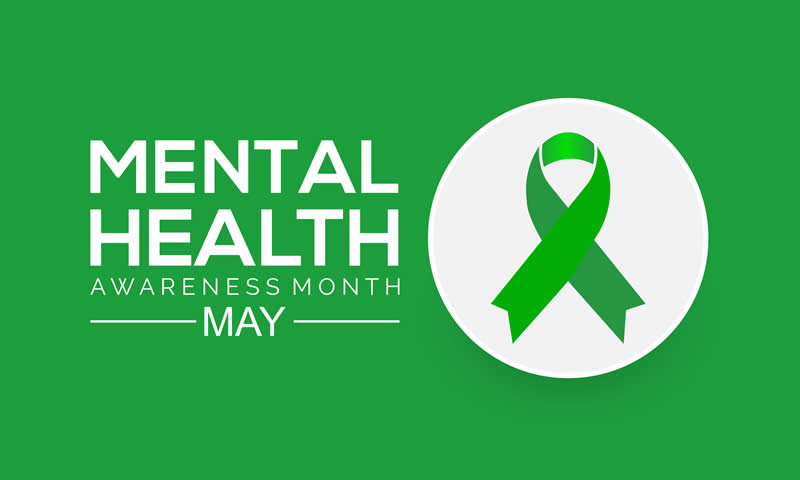How to Spot a Mental Health Crisis in Children: 10 Signs That May Help You See It

Mental health is an integral and foundational part of overall well-being, and it’s equally important for children as it is for adults. Even more so, when you consider that kids brains have yet to develop fully, meaning the skills needed to cope with and understand stress, anxiety, depression, etc. are not present. Although the importance is widely recognized, spotting mental health issues in children can be challenging for parents, caregivers, and educators. The signs might be subtle, easily overlooked, or mistaken for typical childhood behavior. However, early intervention is crucial for addressing mental health concerns and preventing long-term consequences.
Understanding the Big Picture:
The statistics surrounding childhood mental health challenges are staggering. In 2021, 4 in 10 High School students felt persistently sad or hopeless, while 22% of high school students seriously considered attempting suicide (cdc). In the United States alone, approximately 1 in 6 children ages 2-8 years old have been diagnosed with a mental, behavioral, or developmental disorder. These numbers show the significance of prioritizing mental health awareness and support for children.
Why Mental Health Matters for Kids:
Children’s mental health greatly impacts their overall development and quality of life. Positive mental well-being contributes to academic success, positive social interactions, and the ability to cope with life’s challenges. Untreated mental health issues can lead to academic difficulties, behavioral problems, substance abuse, and even suicide. These difficulties are many of the challenges the kids at Rite of Passage programs face each day.
Understanding the Root Causes:
Several factors can contribute to the emergence of mental health problems in children. These may include genetic predispositions, environmental stressors, trauma, bullying, academic pressures, family dynamics, screen time and social media, isolation from the pandemic, and societal influences. Understanding and addressing these underlying factors is essential for intervention and providing care and support for the kids we serve.
The Long-Term Impact:
Untreated mental health issues in kids can have long-term consequences. As they age, kids may struggle with relationships, employment, and overall well-being. In addition, untreated mental health conditions during childhood increases the risk of developing more severe disorders later in life. Intervention services can help kids facing these challenges and aid them in dealing with the root causes of these problems to promote resiliency and a better future with the help of professionals.
So, how do you spot a crisis before it gets uncontrollable? Here are 10 signs of a Mental Health Shift in Children:
- Changes in Mood: Sudden or extreme shifts in mood, such as prolonged sadness, irritability, or unexplained outbursts, may indicate underlying mental health concerns.
- Withdrawal: Being withdrawn from social activities, friends, or family members could signal anxiety, depression, or other emotional difficulties.
- Changes in Sleep Patterns: Insomnia, frequent nightmares, or excessive sleeping can be a sign of emotional distress or mental health disorders.
- Changes in Appetite: Significant changes in eating patterns, such as overeating or undereating, may signal emotional distress or underlying mental health issues.
- Decline in Academic Performance: A sudden decline in academic performance or disinterest in activities that kids previously enjoyed may be a sign of distress.
- Physical Complaints: Consistent complaints related to physical well-being such as headaches, stomachaches, or other unexplained ailments may be from underlying mental health concerns.
- Excessive Worry or Fear: Persistent worries, fears, or phobias that interfere with daily functioning may suggest a reason to be concerned.
- Difficulty Concentrating: Inability to focus, concentrate, or complete tasks may be a sign of attention-deficit/hyperactivity disorder (ADHD), anxiety, or other mental health issues.
- Self-Harm: Any indication of self-harming behaviors, such as cutting, burning, or hitting oneself, should be taken seriously and addressed immediately.
- Substance Abuse: Experimentation with drugs or alcohol, especially at a young age, may be a coping mechanism for underlying mental health issues and traumas.
Recognizing the signs of a mental health crisis in children is the first step toward providing the support and intervention they need. It’s essential for parents, caregivers, educators, and healthcare professionals to remain vigilant, communicate openly with children, and seek professional help when necessary. By addressing mental health concerns early on, we can empower children to lead healthy, fulfilling lives and break the cycle of mental illness for future generations. Remember, you’re not alone in this overwhelming responsibility – there are resources and support available to help navigate the complexities of children’s mental health.
If you or someone you know is going through struggles with their mental health, you can get help by calling the National Mental Health Hotline at 988 or visiting NAMI’s website for more information. For resources surrounding mental health, visit Mental Health America to learn more.

